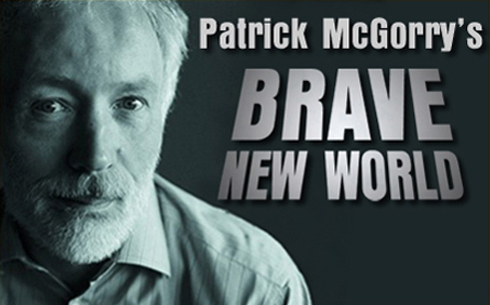Drug Trial Scrapped Amid Outcry
The Age
By Jill Stark
August 21, 2011
 FORMER Australian of the Year Patrick McGorry has aborted a controversial trial of antipsychotic drugs on children as young as 15 who are “at risk” of psychosis, amid complaints the study was unethical.
FORMER Australian of the Year Patrick McGorry has aborted a controversial trial of antipsychotic drugs on children as young as 15 who are “at risk” of psychosis, amid complaints the study was unethical.
The Sunday Age can reveal 13 local and international experts lodged a formal complaint calling for the trial not to go ahead due to concerns children who had not yet been diagnosed with a psychotic illness would be unnecessarily given drugs with potentially dangerous side effects.
Quetiapine, sold as Seroquel, has been linked to weight gain and its manufacturer AstraZeneca, which was to fund the trial, last month paid $US647 million ($A623 million) to settle a lawsuit in the US, alleging there was insufficient warning the drug may cause diabetes.
Professor McGorry, one of the Prime Minister’s key mental health advisers, planned to conduct the trial at Orygen Youth Health in Parkville, listing it on the Australian New Zealand Clinical Trials Registry last March. It was to investigate whether the drug would decrease or delay the risk of people aged between 15 and 40 with early signs of mental illness developing a psychotic disorder such as schizophrenia.
Last month, psychiatrists, psychologists and researchers from Australia, Britain and the US lodged a complaint with the ethics committee of Melbourne Health, the umbrella health service that includes Orygen.
They argued there was little evidence onset of psychosis can be prevented and it was potentially dangerous to use antipsychotics on people who merely have risk factors for a psychotic illness. They said there was evidence that up to 80 per cent would never develop a disorder.
Professor McGorry insists the decision to scrap the trial was made in June and is unrelated to the complaint, which he said he was only alerted to just over a week ago.
He maintained the trial received ethics approval in July last year but was abandoned due to “feasibility issues” with recruiting participants in European and American sites, which were to form the international arm of the study. He said Orygen had to choose between investing in the drug trial or pursuing another trial using fish oil, which had proven to be useful as an early intervention treatment for schizophrenia in a smaller study. He opted for fish oil because it had less potential for side effects than antipsychotics.
Melbourne Health confirmed the complaint will still be considered by its research ethics committee in September. Yesterday the trial was listed as “prospective” on the clinical trials registry but Professor McGorry said it was being removed.
Earlier this month The Sunday Age revealed a growing backlash against the government’s mental health reforms, with Professor McGorry’s peers claiming his youth early intervention model had been “massively oversold”.
Associate Professor Geoff Stuart of La Trobe University’s school of psychological sciences, who signed the complaint, said questions remained about the trial.
“If these feasibility obstacles can be overcome in future [would] Professor McGorry embark on such a trial again? He was willing to endorse a trial which was exploring the use of antipsychotic medication in an at-risk group. There’s a major ethical issue about medicating four people to supposedly save the fifth when you’re not saving them anyway, you’re just masking their symptoms. We’re talking about kids as young as 15 who could get a full dose of antipsychotics and they’re not psychotic.”
Professor McGorry acknowledged the evidence suggested antipsychotics were not effective as a first-line treatment for the at-risk group. But he said the risks had been exaggerated and he would consider a similar trial on patients for whom other treatments had failed. “I wrote the guidelines which said do not use antipsychotics in ultra-high risk patients, so I’ve never been supportive of it in clinical practice … [but] we should have the freedom to research all available options for this population,” he said.
The controversy over the aborted trial largely centres on “psychosis risk syndrome”, a condition that some mental health advocates want formally recognised. But critics say that could lead to young people being wrongly labelled, stigmatised and medicated for symptoms that may be temporary. They also fear that while Professor McGorry says his Early Psychosis Prevention and Intervention Centres prescribe drugs only to those who have experienced a psychotic episode, his willingness to medicate an at-risk group could mean the criteria will broaden. Professor McGorry insists this will not happen.
Early intervention What is it?
EARLY intervention is based on identifying and treating psychosis in its early stages to prevent patients developing full-blown psychotic illnesses such as schizophrenia.
Patrick McGorry’s Early Psychosis Prevention and Intervention Centres (EPPIC) treat young people who have experienced a psychotic episode with treatments such as psychotherapy, family therapy, medication or a combination. He says early treatment significantly improves the chance of recovery and reduces long-term impairment. But diagnosing psychotic disorders is difficult and McGorry’s critics say there is no reliable diagnostic tool to predict if someone will develop a psychotic illness and there is insufficient evidence intervention can prevent it.
Critics say up to 80 per cent of those with ”psychosis risk syndrome” – which refers to people who only have risk factors such as a family history or a deterioration in mental health – never develop an illness. They fear early intervention will lead to many patients being wrongly labelled as psychotic and medicated unnecessarily.
A recently released literature review by The Cochrane Collaboration found there was insufficient evidence that early intervention could prevent psychosis and that any benefits were not long term. Professor McGorry said it used flawed methodology.
http://www.theage.com.au/national/drug-trial-scrapped-amid-outcry-20110820-1j3vy.html?from=age_sb
August 21, 2011


SHARE YOUR STORY/COMMENT